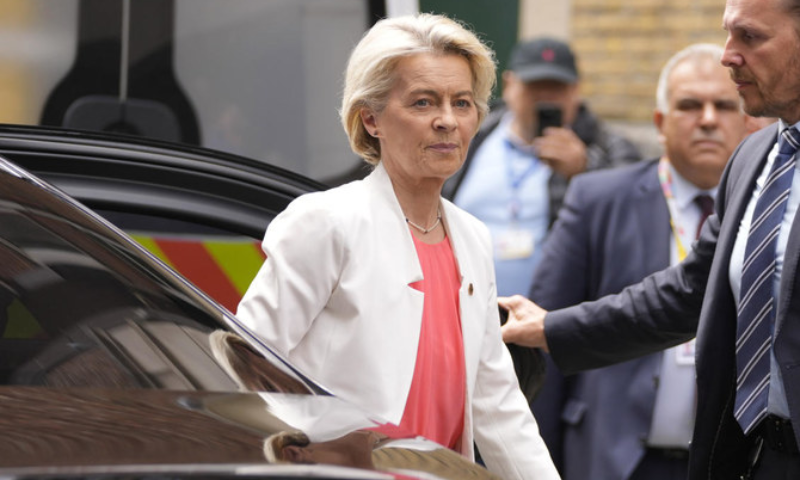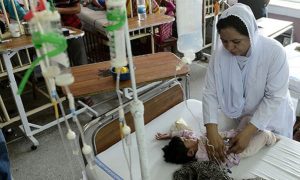BRUSSELS, Belgium: EU leaders convened in Brussels on Monday to deliberate the allocation of top positions within the European Union, with Ursula von der Leyen emerging as a frontrunner for another term leading the European Commission. However, negotiations hit a snag as von der Leyen’s conservative camp pushed for a greater share of key roles, complicating the bargaining process.
The discussions aimed to finalize appointments for the EU’s top three positions: the presidency of the European Commission, chairmanship of summits, and management of the bloc’s diplomacy. German Chancellor Olaf Scholz expressed optimism about reaching an agreement swiftly, echoed by Dutch Prime Minister Mark Rutte, who noted growing consensus around von der Leyen’s candidacy.
Despite initial hopes for a smooth process, tensions rose when the center-right European People’s Party (EPP), led by von der Leyen, unexpectedly advocated for splitting another top position. This move disrupted plans, particularly regarding the presidency of the European Council, with suggestions to divide the role between socialists and conservatives.
Amid these deliberations, attention also turned to other key roles, including the high representative for foreign policy, potentially filled by Estonia’s Prime Minister Kaja Kallas. Poland’s endorsement of Kallas underscored the significance of signaling Eastern European interests in EU leadership.
As negotiations continue, von der Leyen faces the challenge of securing sufficient support from EU leaders to retain her position, requiring backing from a qualified majority of countries and population. Furthermore, the composition of the new European Parliament adds another layer of complexity, with lawmakers needing to approve leaders’ selections and proposed commissioners.
The outcome of these deliberations will shape the EU’s leadership landscape and its ability to navigate pressing challenges, including internal cohesion, geopolitical tensions, and socio-economic recovery. As von der Leyen navigates this intricate process, the dynamics of European politics are set for further evolution.
























